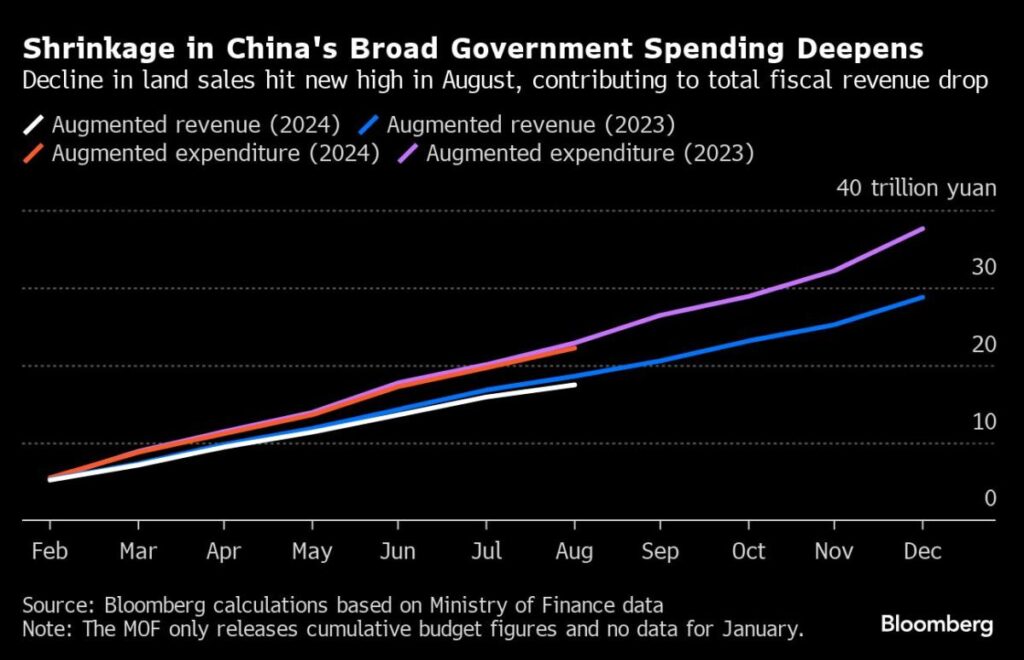China’s recent announcement to bolster its property sector and economy has garnered significant attention as the country aims to counteract its ongoing growth slowdown. The government, led by Finance Minister Lan Fo’an, revealed that local governments would be allowed to utilize special bonds to acquire unsold residential properties, though specific financial details remain unspecified. The indication of potentially increased sovereign borrowing is a notable development, with Lan suggesting that there is still considerable capacity for the central government to incur additional debt and amplify the budget deficit. This revelation offers a glimpse into the government’s intentions, suggesting a possible budget revision in the near future that could satisfy mounting economic pressures.
Investors are particularly focused on the implications of these announcements, as the government’s fiscal strategies aim to address pressing issues in the property sector and local government debt. Analysts, including Bruce Pang from Jones Lang LaSalle Inc., have expressed optimism that these fiscal measures will provide necessary support to alleviate local debt risks, recapitalize state-owned banks, and stabilize the housing market. However, the lack of specific details regarding the scale of these stimulus measures has left some investors wanting. Nevertheless, the promise of more significant fiscal support post a meeting of key lawmakers may offer hope for future fiscal developments.
Bloomberg economists have indicated that the government is positioned to present more binding fiscal stimulus measures as discussions progress in the coming weeks. The recent meeting of the Standing Committee of the National People’s Congress, responsible for oversight of the budget, provides a precedent for such fiscal interventions, raising expectations for an increase in the budget deficit ratio and sovereign debt. The anticipation is that the Ministry of Finance could unveil plans for substantial new treasury and local bond issuances, potentially amounting to around 2 trillion yuan, an ambitious figure that aligns with prior market expectations.
A significant focus of the government’s strategy appears to rest on the expansion of special local bond funding eligibility, which could unlock a considerable amount of stagnant capital in the economy. Experts like Ding Shuang from Standard Chartered have pointed out the significance of such measures, which could infuse approximately 1 trillion yuan into productive economic activities. There is an expectation that this expanded bond usage will enable greater liquidity within the economy, though market reactions suggest a cautious optimism rather than outright enthusiasm.
In addressing local government debt, the government’s proposed initiatives to allow for off-balance sheet debt swaps indicate a pragmatic approach to financial management amid economic struggles. Analysts from Goldman Sachs have predicted that the government may increase the scope of the local government debt swap plan, which could see it growing significantly over the coming years, suggesting that authorities are acutely aware of the importance of stabilizing local finances as part of broader economic recovery efforts.
While the focus on fiscal policies may be evident, there remains a notable restraint in the government’s willingness to implement direct consumption-boosting measures, such as cash handouts for families. Observers like ANZ’s Zhaopeng Xing note that this hesitance stems from the government’s long-standing concerns regarding welfare dependency. Thus, while the current approach prioritizes sustaining growth and managing risks, the path to a more consumption-driven economic revival appears complex and long-term, with the potential for future adjustments as the situation develops. Overall, the government’s commitment to supportive fiscal policy initiatives signals a proactive stance, albeit a cautious one, amid uncertainty in China’s economic outlook.

